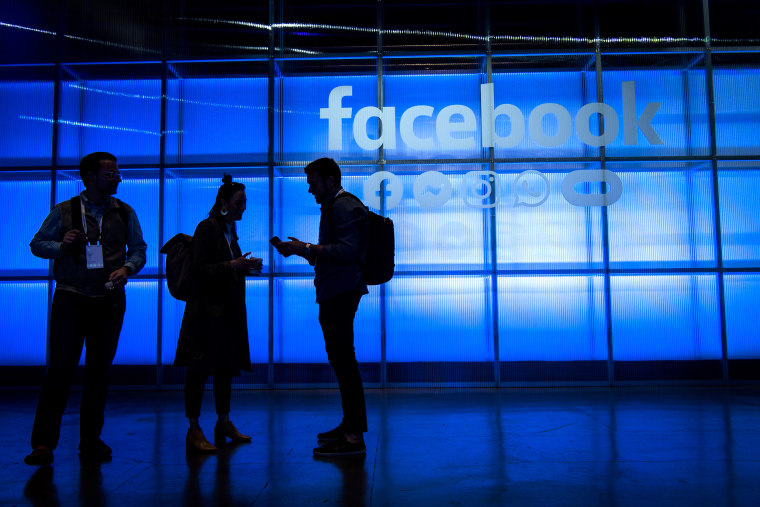During his appearance on Fox News yesterday morning, Donald Trump peddled all kinds of falsehoods, lies, and bizarre curiosities, but there was one that proved especially troublesome for the president.
Reflecting on the coronavirus pandemic, the Republican declared, "If you look at children, children are almost -- and I would almost say definitely -- but almost immune from this disease." He went on to say, in reference to children, "They don't have a problem. They just don't have a problem." He added that kids are "virtually immune."
That was a ridiculously untrue assessment. While the evidence suggests children are less vulnerable to COVID-19 than adults, children can get infected, transmit the disease to others, and some children have died from the virus.
The president nevertheless promoted his nonsensical claims to the public via social media, which for Facebook, was simply a bridge too far.
Facebook removed a video post from President Donald Trump's personal page Wednesday that included a segment from a Fox News interview in which he falsely said children are "almost immune" to COVID-19, the disease caused by the coronavirus.
Andy Stone, a Facebook policy spokesperson, explained, "This video includes false claims that a group of people is immune from COVID-19 which is a violation of our policies around harmful COVID misinformation."
The move -- the first time Facebook has removed Trump misinformation about the coronavirus -- was surprising in large part because the social-media giant has been so reluctant to take similar steps, especially around the president's many other deceptions. Indeed, the Washington Post reported yesterday afternoon -- before Facebook removed Trump's video post -- on the company allowing the president's political operation to push transparently false anti-Biden claims tens of millions of times through paid advertising. The ads have not included "any kind of warning or label" alerting the public to Team Trump's brazen dishonesty.
Soon after, however, the president posted a video in which he suggested children are "virtually immune" to the coronavirus, which Facebook, despite its general hands-off posture, simply couldn't tolerate.
The Trump campaign proceeded to accuse the company of "flagrant bias," suggesting the president's aides want social-media companies to allow Trump to mislead the public -- even about matters of public health -- with impunity.
In this case, Facebook wasn't alone: Twitter also removed the video last night after it was promoted by the Trump campaign, rejecting it as "misinformation."
Though there was some confusion about this last night, Twitter -- which has been more assertive than Facebook in alerting the public to the president's eagerness to mislead -- apparently told Team Trump that it would not be able to publish any tweets until it deleted the misinformation about kids and COVID-19.
For his part, the president defended his nonsense during a White House press briefing yesterday, insisting that when he spoke about children and immunity, he meant that kids don't get "very sick," because the virus "doesn't have much of an impact on them."
I wish that were true. It's not.

